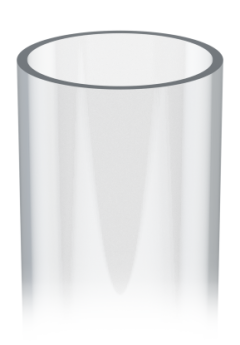Polycarbonate
Polycarbonate
Polycarbonate, also known as bisphenol A (BPA), was independently synthesized by polymer chemists Dr. H. Schnell of Bayer AG, Germany and Dr. Daniel W. Fox of General Electric Company, USA in 1953.

Polycarbonate, also known as bisphenol A (BPA), was independently synthesized by polymer chemists Dr. H. Schnell of Bayer AG, Germany and Dr. Daniel W. Fox of General Electric Company, USA in 1953.
Polycarbonate is simple to clean and polish using a clean cloth and cleaning compounds. It is possible to remove light scratches from polycarbonate with special abrasive compounds.
Shop all polycarbonate maintenance| Property | Acrylic |
|---|
Polycarbonate is capable of transmitting light within the 80 to 90 percent range, which is sufficient for greenhouses. Compared to glass, the lighter weight of polycarbonate allows more total light to enter the greenhouse. Less framing is required to hold the polycarbonate in place.
UV resistant polycarbonate is a transparent extruded polycarbonate sheet with extra protection against UV radiation. It remains unalterable up to temperatures of 120°C, always maintaining an exceptional surface and transparency.
Shop all UV resistant polycarbonate sheets
Polycarbonate as a material blocks almost the entire relevant UV spectrum.
Polycarbonate is a versatile thermoplastic which may be extruded for applications which require superior strength, high temperature resistance, high impact resistance, and optical clarity. Due to its toughness and durability, polycarbonate tubing is easily drilled, machined, notched, and bent.
Shop all polycarbonate tubes
Polycarbonate tubing is perfect for applications, including sight glasses, medical devices, electronics packaging, LED tubing, flow lines, and more. It can be machined, drilled, cut, and sawed, and is quickly joined with solvents or adhesives.
Polycarbonate rod is a semi-transparent thermoplastic that exhibits high impact resistance, good machinability, and excellent electrical properties
Shop all polycarbonate rods
Machine-grade polycarbonate rod has excellent dimensional stability and good strength and stiffness over a wide range of temperatures. Polycarbonate offers very high impact strength, high modulus of elasticity, and a 270°F (132°C) heat deflection temperature at 264 psi.
These additives make plastic rod useful for a broad range of industries such as aerospace, packaging, conveying, food processing equipment, heavy equipment and machinery, scientific instrumentation, facilities MRO, and more.